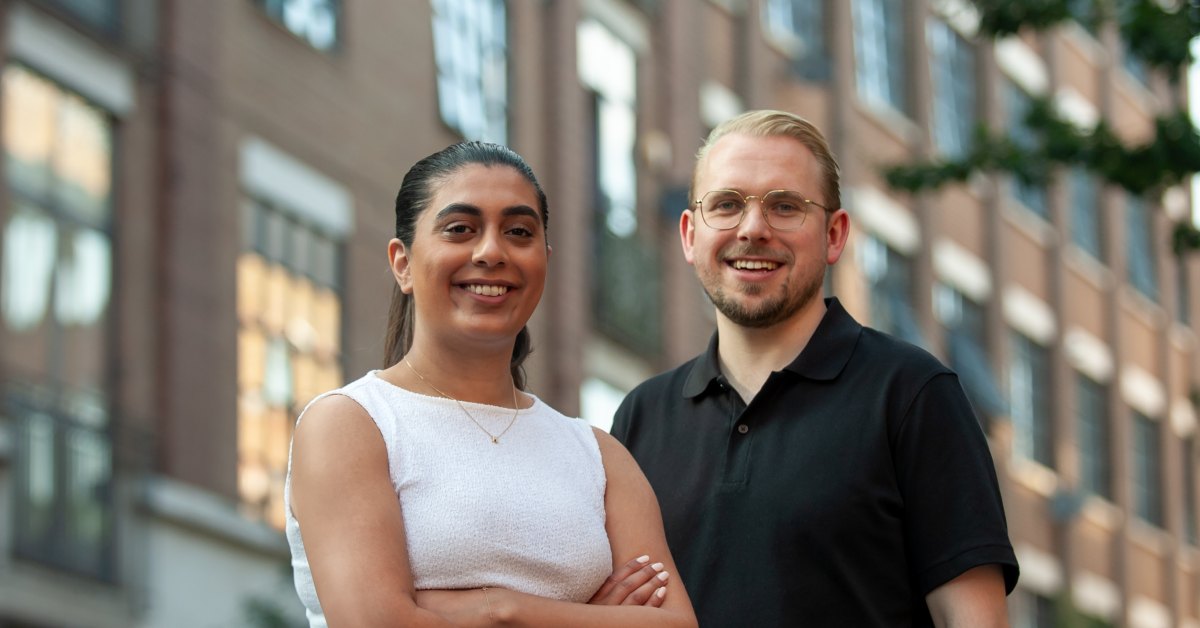Lately, a lot of companies are vying to develop cultured meat of beef and chicken in laboratories for various reasons that also includes improvement in food safety by minimizing animal-borne diseases and pathogens. The vitro meat is also seen as a way to satisfy the growing demand for protein globally while addressing issues with modern livestock and poultry production methods as well.
It’s worth mentioning the livestock sector generates more greenhouse gas emissions as measured in CO2 than transport. A Dutch company presented the world’s first lab-grown beef burger five years ago that cost around cost $325,000.
Single Cell-based meat technology!
Falling in the same line, the cell-based meat startup Meatable is on a pursuit to produce better meats that benefit the world with a single cell. After years of research, scientists from Cambridge and Stanford universities have created a breakthrough patent in stem cell technology. Moreover, the Dutch company is striving hard to solve the problem of scalability in the cell-based meat market.
Meatable secured $3.5M in funding!
A couple of days back, the University of Cambridge and Stanford University backed startup has secured $3.5M in funding led by BlueYard Capital with participation from Atlantic Food Labs and Future Positive Capital, Backed VC and several angel investors like Charles Songhurst and Jörg Mohaupt. With this fund, the company is planning to expand its team, attract new partners, and accelerate product development.
No animals are harmed
Unlike other companies, Meatable takes one cell from a cow, chicken, or pig to create animal muscle and fat cells that grow into real, tasty, guilt-free meat. In this process, no animals are harmed and in fact, no animal support is needed once the cells are collected. With this process, the lives of millions of animals are saved, paving way for clean and healthy meat consumption.
A juicy hamburger coming soon
As per the company, this approach utilizes minimal resources to produce meat in just 3 weeks making it the most sustainable and scalable way to feed the world. Using this patented technology, Meatable aims to be the first company to produce the meats that account for 90% of total global meat consumption, like chicken, pork, and beef and plans to present its first product “a juicy hamburger” within the span of three years.
Dr. Mark Kotter, neurosurgery clinician scientist and lecturer at University of Cambridge and inventor of the patented Meatable technology, said: “In conjunction with the work of Professor Roger Pedersen at Stanford University, the technology my team has developed overcomes the scalability issues that have been holding back progress in this field. The cell lines we’ve developed proliferate indefinitely and produce millions of identical cells, at unprecedented purities and within a very short timeframe. The result is genuine tissue that does not require fetal bovine serum to grow — the standard cellular medium upon which cells usually feed — which has been one of the biggest barriers to producing meat at scale.”
Cultured meat conserves environment
Apart from supporting clean meat consumption, it is equally better for the environment, in turn, reducing water and land usage and greenhouse gas emissions by 90% compared to conventional meat.
Jason Whitmire, General Partner at BlueYard Capital and member of the Meatable Board of Directors said: “We look forward to supporting Meatable on its mission to re-create meat from animal cells and become a key player in a post-animal economy. We believe Meatable’s unique IP and team experience give it defensibility and a head start in solving the greatest scalability challenges of this exciting and emerging market.”
Improves welfare of human, animal and planet without sacrificing taste
Meatable CTO Daan Luining added: “Meatable is flipping the food production paradigm by aligning practices to better care for the welfare of humans, animals and the planet as a whole. Our products are completely sustainable and slaughter-free and aim to decrease the meat industry’s footprint while increasing food security and never sacrificing on taste. Though the cell-based meat market is still in its early stages, our novel production methods are jumpstarting the process of creating affordable alternatives to traditional meat for consumers.”
Up to the consumers to decide
To make meat more accessible to the general population, there has to be a new way and this Cultured meat process looks like one. While it’s unavailable commercially for consumers, making people understand about the process of cultured meat and nutrient profile could help increase acceptability earlier. Having said that, it’s up to the consumers to decide whether to support this or not.
Stay tuned to Silicon Canals for more updates.










01
From telecom veteran to Dutch Startup Visa success: The Jignesh Dave story